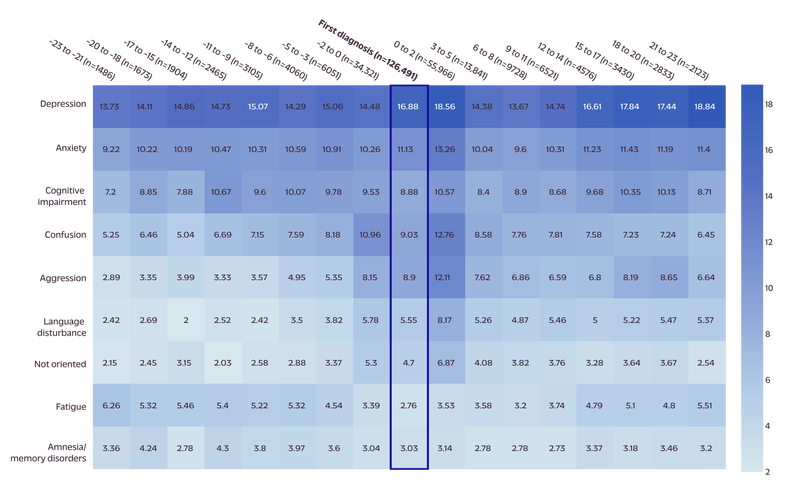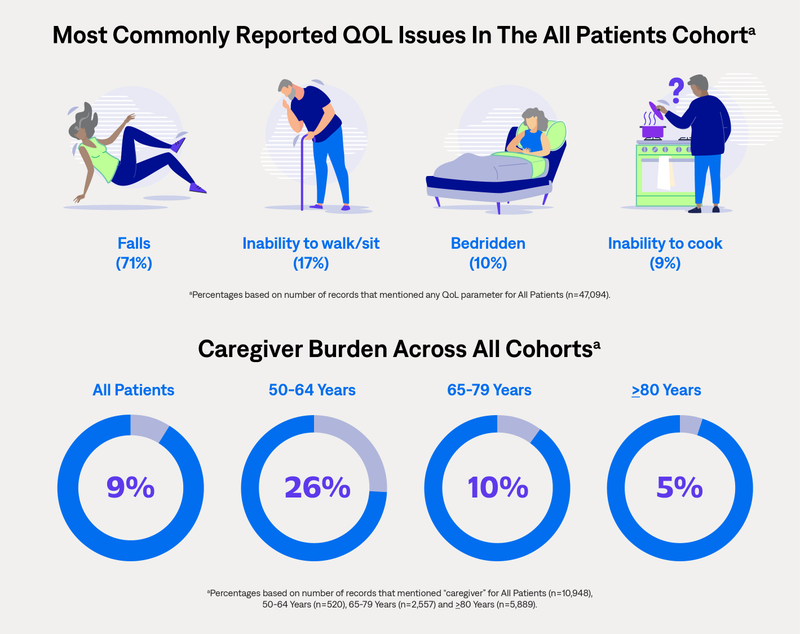
This poster was originally presented at the International Society for Pharmacoeconomics and Outcomes Research (ISPOR) Conference 2024, held May 5–June 8, 2024, in Atlanta, GA.
Authors: David Iwanyckyj, Pablo Racana, Ashley Gamble, PhD, Melanie Jardim, PhD
Affiliations: Amplity, Langhorne, PA, USA
This study leveraged AnswerY™ (formerly known as Amplity Insights), our robust, HIPAA-compliant real-world database (RWD), composed of transcribed physician notes, to characterize the real-world clinical and humanistic burden of Alzheimer’s disease (AD).

